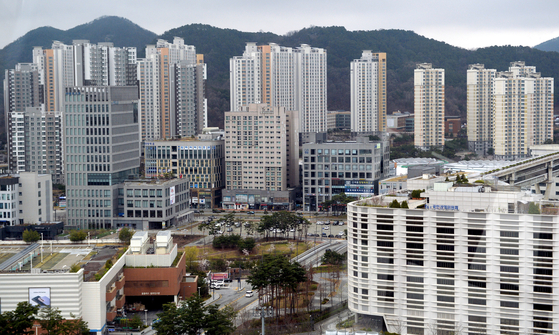
The area of Sejong City, which ranked first in the nation in the rate of increase in public housing prices this year. Freelancer Kim Seong-tae
The objection to the public housing price of this year ends on the 5th of this month. In the real estate industry, the number of objections this year is expected to be the highest ever. This is because the number of apartment complexes filing objections in groups has increased significantly.
In the Gangnam area of Seoul, Eunma Apartments in Daechi-dong, Gangnam-gu, and the Raemian Gileum Centerpiece, Gileum-dong, Seongbuk-gu, in the Gangbuk area of Seoul, are calling for a downward adjustment of the public price. Group movements are also taking place in Cheongna, Incheon, and Seongnam, Gyeonggi.
It is also attributable to the increase in tax burdens such as property taxes as the public housing price for apartment houses rose the largest in 14 years this year (19%).
Experts believe that the side effects will be even greater as there are many problems with the current method of calculating the published price. Professor Soo-hyun of Jeju National University (Chairman of the Society for Emotional Evaluation) said, “The publicly announced price of apartment houses is a’three nos’ public price without expertise, transparency, and fairness.”
Experts believe that the biggest problem is the evaluation of the public housing price by the Korea Real Estate Agency (formerly the Korea Appraisal Agency), which is a non-appraisal agency under the law without verification by a specialized appraisal agency. It is pointed out that a proper evaluation cannot be made in the’self-calculation, self-verification’ structure.
The transparency issue is raised because there is no accurate basis for how the’market price’, which is the basis for the increase in the public price, is calculated. The government said, “It was calculated by taking into account the actual transaction prices of nearby apartments,” but it does not disclose where or how the reference was made.
There are also many questions about the government’s policy to raise the public housing price to 90% of the market price by 2030. Hong Ki-yong, a professor of business administration at Incheon University (former president of the Korea Tax Association), said, “The public price is only a tool for calculating the appropriate tax. There is no reason to be the same as the housing price.”
In the case of the United States, each local government autonomously operates the property tax rate and the tax base realization rate (Korea’s published price realization rate). In New York, the nominal property tax rate is as high as 19.99%, but the target realization rate is only 6%. On the other hand, in Washington, the realization rate is 100%, while the nominal tax rate is only 0.85%.
Equity is also a problem. The government said that it would raise the publicly priced housing first, and Park Young-sun, the Mayor of the Democratic Party’s Mayor of Seoul, said, “We will strongly suggest and promote the Democratic Party on a plan to prevent the increase in the publicly priced apartments under 900 million won from exceeding 10%. However, many point out that this difference is contrary to tax equity.
Experts agree that errors can be prevented by introducing a third-party verification procedure for the quoted price. The international evaluation standard (IVS) and foreign cases (USPAP) also see verification work as a professional appraisal function. Professor Soo-Hyun Soo suggested that the method of verification by each local government could be an alternative.
Reporter Ham Jong-sun [email protected]
![]()
